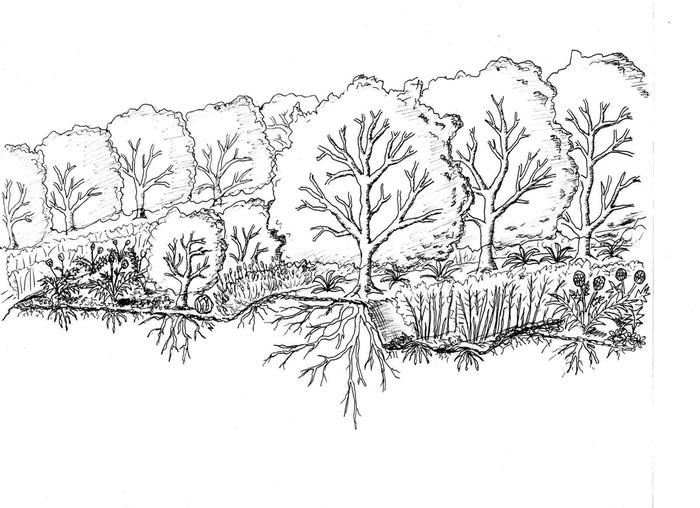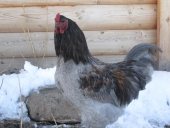








CJin VT wrote:
permaguy Hatfield wrote: Oaks...need griding
Hony Locust :...need griding...
Chestnust :...need drying and griding
Berry :...need drying to store
I'm no aware of any nuts that chicken self-harvest,
so i guess corn is my storable winter carbs
Um, doesn't corn need drying and grinding for chickens? Why eliminate those other fodders when the requirements are the same?
My project thread
Agriculture collects solar energy two-dimensionally; but silviculture collects it three dimensionally.




Cj Verde wrote:
CJin VT wrote:
permaguy Hatfield wrote: Oaks...need griding
Hony Locust :...need griding...
Chestnust :...need drying and griding
Berry :...need drying to store
I'm no aware of any nuts that chicken self-harvest,
so i guess corn is my storable winter carbs
Um, doesn't corn need drying and grinding for chickens? Why eliminate those other fodders when the requirements are the same?
See? I repeat my original question!




My project thread
Agriculture collects solar energy two-dimensionally; but silviculture collects it three dimensionally.








My project thread
Agriculture collects solar energy two-dimensionally; but silviculture collects it three dimensionally.
 1
1




Guy De Pompignac wrote:i'm designing my poultry feed system, and i want to include corn as a storable carb for winter




Alison Freeth-Thomas wrote:Lots. Guy is further south than us and we've only had our FIRST frost of the winter today! Snow is unusual. They still forage all day 8am to 6pm.




Cj Verde wrote:Ah ha!
Well, I go back to my original suggestions and I'll add that berries and things don't need drying if you leave them on the tree/shrub/vine. Let them forage for much of their food, give them scraps, and they should only need a small amount of grain.




Guy De Pompignac wrote:
I"m curious to read your list, of species that are at this moment hanging fruits on their branches. I only see persimmon here, and i presume they will not last forever
My project thread
Agriculture collects solar energy two-dimensionally; but silviculture collects it three dimensionally.




There is one argument for corn. It is a great and destructive argument. The plant is annual. The labor of the husbandman is quickly rewarded. The ruin of his farm comes later.
As between corn and chestnuts as types of mountain agriculture, the labor cost appears to be plainly in favor of the chestnut, but there is that pesky time element.
My project thread
Agriculture collects solar energy two-dimensionally; but silviculture collects it three dimensionally.








 1
1








Democracy is two wolves and a lamb voting on what to have for lunch. Liberty is a well-armed lamb contesting the vote. -Benjamin Franklin




My project thread
Agriculture collects solar energy two-dimensionally; but silviculture collects it three dimensionally.




Democracy is two wolves and a lamb voting on what to have for lunch. Liberty is a well-armed lamb contesting the vote. -Benjamin Franklin




My project thread
Agriculture collects solar energy two-dimensionally; but silviculture collects it three dimensionally.




Democracy is two wolves and a lamb voting on what to have for lunch. Liberty is a well-armed lamb contesting the vote. -Benjamin Franklin

|
The human mind is a dangerous plaything. This tiny ad is pretty safe:
Learn Permaculture through a little hard work
https://wheaton-labs.com/bootcamp
|






